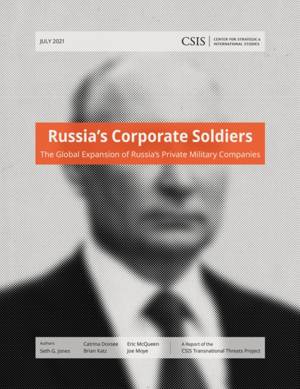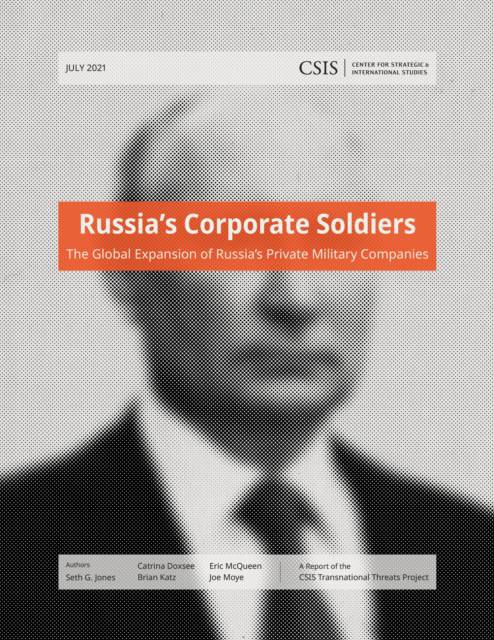
- Afhalen na 1 uur in een winkel met voorraad
- Gratis thuislevering in België vanaf € 30
- Ruim aanbod met 7 miljoen producten
- Afhalen na 1 uur in een winkel met voorraad
- Gratis thuislevering in België vanaf € 30
- Ruim aanbod met 7 miljoen producten
Zoeken
Russia’s Corporate Soldiers
The Global Expansion of Russia’s Private Military Companies
Seth G. Jones, Catrina Doxee, Brian Katz, Eric McQueen, Joe Moye
€ 67,45
+ 134 punten
Omschrijving
The CSIS Transnational Threats Project analyzes Russia’s increasing use of private military companies as a means to expand its influence, extract resources, and build the capacity of partners and allies through deniable, irregular means.
Specificaties
Betrokkenen
- Auteur(s):
- Uitgeverij:
Inhoud
- Aantal bladzijden:
- 120
- Reeks:
Eigenschappen
- Productcode (EAN):
- 9781538140390
- Verschijningsdatum:
- 7/11/2021
- Uitvoering:
- Paperback
- Afmetingen:
- 216 mm x 279 mm
- Gewicht:
- 364 g

Alleen bij Standaard Boekhandel
+ 134 punten op je klantenkaart van Standaard Boekhandel
Beoordelingen
We publiceren alleen reviews die voldoen aan de voorwaarden voor reviews. Bekijk onze voorwaarden voor reviews.








